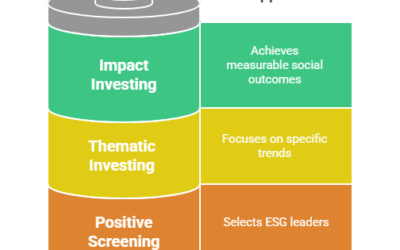As cryptocurrency becomes more mainstream, financial planners are fielding more questions from clients curious about whether—and how—digital assets fit into their portfolios. Whether it’s Bitcoin, Ethereum, or newer tokens, clients want clear, informed guidance.
Here are some of the most common questions clients ask, and how financial planners can be prepared to respond.
1. “Should I invest in crypto?”
This is usually the first and biggest question. Clients often hear stories of major gains and want to know if they’re missing out. A planner’s role isn’t to promote or discourage crypto—but to contextualize the risks and rewards.
Advisory Approach:
-
Explain volatility and lack of regulation compared to traditional assets
-
Emphasize risk tolerance and how crypto might fit into an overall allocation
-
Treat it like any other speculative investment: a small percentage, if any, based on goals
2. “How much of my portfolio should be in crypto?”
Clients may want specific percentages or benchmarks, especially if they’re reading online forums or social media influencers.
Advisory Approach:
-
Use a goals-based framework: is this long-term speculation, tech interest, or inflation hedge?
-
Suggest a conservative cap (e.g., 1–5% of total assets) for high-risk assets
-
Consider alternative allocations that offer better liquidity and stability
3. “What’s the difference between Bitcoin and other cryptocurrencies?”
Clients often conflate all digital currencies as “crypto” without understanding the distinctions between coins, tokens, and blockchain projects.
Advisory Approach:
-
Break it down simply: Bitcoin = store of value, Ethereum = smart contracts, altcoins = varying use cases
-
Caution against chasing new coins without clear fundamentals or project backing
-
Encourage due diligence like they would with startups or stocks
4. “Is it safe?”
This can refer to both market risk and security risk. Many clients are wary of hacks, scams, or losing access to their digital wallets.
Advisory Approach:
-
Discuss the importance of using reputable platforms (Coinbase, Kraken, etc.)
-
Explain private key management, cold storage, and the dangers of phishing scams
-
Highlight that there’s no FDIC insurance or SIPC protection with crypto accounts
5. “How do I report crypto on my taxes?”
Crypto taxation is an area of confusion for many clients. Some may not realize that every transaction can trigger a taxable event.
Advisory Approach:
-
Explain that the IRS treats crypto as property, not currency
-
Note that gains/losses must be reported—even for small trades or payments
-
Recommend working with a CPA familiar with digital assets or using crypto tax software like CoinTracker or Koinly
6. “Can I hold crypto in my retirement account?”
More investors are asking about crypto exposure in IRAs or 401(k)s, especially as some custodians now offer it.
Advisory Approach:
-
Acknowledge that self-directed IRAs can allow for crypto holdings, but come with fees and risks
-
Discuss limited liquidity and custodial challenges in tax-advantaged accounts
-
Weigh whether traditional vehicles (e.g., ETFs with crypto exposure) offer a better balance
7. “Is crypto a hedge against inflation or recession?”
Some clients are drawn to crypto for its potential to serve as a “digital gold,” especially during market uncertainty.
Advisory Approach:
-
Share current research and trends—crypto hasn’t consistently correlated with inflation or traditional hedges
-
Emphasize diversification over relying on one volatile asset class
-
Discuss alternatives like TIPS, commodities, or dividend-paying stocks
8. “What are NFTs and should I invest in them?”
This question often comes from younger clients or those involved in creative industries. NFTs are seen as both collectibles and investments.
Advisory Approach:
-
Explain that NFTs are unique digital assets, often tied to art, music, or gaming
-
Emphasize the speculative nature and lack of liquidity
-
Reinforce that “investing” in NFTs is different from owning income-generating or regulated assets
Final Thoughts: Educate, Don’t Evangelize
When it comes to cryptocurrency, most clients aren’t looking for hype—they want clarity. Financial planners don’t need to be crypto experts, but they should be equipped to explain the basics, guide clients through the risks, and help them make informed decisions that align with their goals.
As crypto continues to evolve, staying informed—and knowing where to direct clients for deeper research—can go a long way in building trust and providing value.




